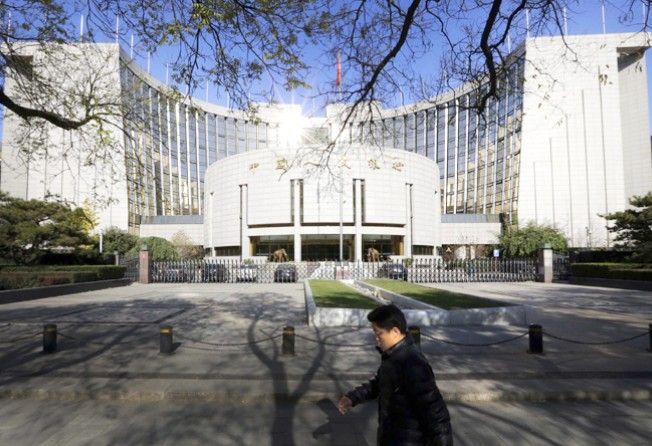
Reforms ahead as Beijing keeps eye on capital flows
New rules come as the government cracks down on corruption and liberalises the capital account

Moves by Beijing to strengthen monitoring of the mainland’s balance of payments are as likely tied to the long-promised liberalisation of the country’s capital account as they are to a clampdown on corruption.

The new rules revealed by the State Council last month come amid a year-long crackdown on corruption and a Beijing-backed bid to boost overseas investments by Chinese firms to broaden the nation’s international asset base that will dilute its direct exposure to US dollar-denominated holdings in official reserves – which are currently around US$3.7 trillion.
Experts say the twin motives for the new rules fit clearly with the government’s long term plans for economic development and reform, with analysts broadly expecting the renminbi currency to be basically convertible on the capital account some time between 2015 and 2020.
“Obviously, this is the trend, that China will loosen its capital controls over the next five to 10 years, so revised rules on monitoring BOP (balance of payments) is a must due to risk management concerns,” Raymond Yeung Yu-ting, a senior economist at ANZ Banking, told the South China Morning Post.
The balance of payments refers to monetary transactions, including goods, services and investments, between one country and other countries.
The State Administration of Foreign Exchange (SAFE) said the balance of payments under the current account showed a surplus of US$138.2 billion in the first three quarters of this year, bolstered partly by a surplus in goods trade.
That implies that more money is flowing into the country than is leaving it through official channels.
The clear risk for the government is that illicit capital flows are far bigger than feared and that substantive liberalisation will see a sudden, destabilising shift of capital offshore.
According to a research by Wealthinsight, a research firm which tracks high-net-worth individuals around the world, rich mainlanders held US$658 billion of their wealth outside the mainland last year.
A crackdown on double counting and outright overstatement of cross-border invoices – the most favoured method by which money is shifted overseas to avoid the US$50,000 a year limit on foreign currency transactions for individuals – has already served to eat into official estimates of the current account surplus.
“Before the government can move forward to the opening up of the capital account, more details of capital flows will be needed to strengthen supervision and assess potential risks,” said Zhao Qingming, an expert on international finance.
Li Xuan, a law professor at Central University of Finance and Economics, said the revised rules would help the authorities to better understand details of cross-border capital flows, which could provide hints of the transfer of illicit assets and money laundering.
“However, the anti-corruption effect will be minimal due to inadequate enforcement,” Li said, noting that punishment for fake declarations or omissions was not strong enough. Individuals violating the declaration requirements will be subject to a penalty of no more than 50,000 yuan, while the fine for institutions is capped at 300,000 yuan.
The move represented a small step forward in combatting the corrupt transfer of assets overseas by senior officials and senior executives of state-owned companies, Li said.
Guan Tao, head of the balance of payments division at SAFE, said last month that while penalties under the statistics law were relatively light, illegal asset transfers were also subject to punishment under other laws.
From a technical point of view, monitoring transactions through financial institutions such as banks and brokerages so as to better understand international transactions would not be too difficult, Li said, but SAFE would also need to make an effort to crack down on any breaches in the declaration process.